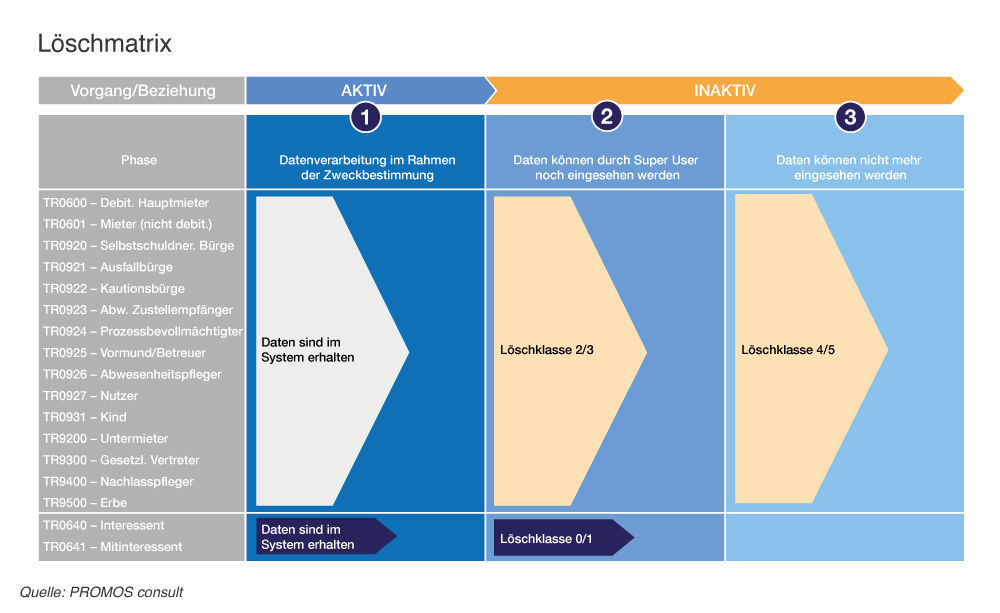One year of the EU-GDPR – not such a nightmare after all?
Personal data is the daily bread of companies in the real-estate industry. Yet dealing with it from a data-protection perspective is often not a routine practice. Frequently, there were – and still are – no standardised rules for handling saved data, although the German Federal Data Protection Act already included numerous restrictions regarding the use of personal data even before 25 May 2018. Since the new law came into force, the housing industry has not had to fear financial penalties despite increased complaints – until now, companies have only been issued warnings. However, increased unannounced on-site checks and corresponding sanctions are only a matter of time. Until now, the main driving force for dealing with the content and technical aspects of the EU-GDPR was the public itself, as the transparent and legally compliant handling of personal data is an important image factor for real-estate companies.[1]
So, even after one year of experience with the EU-GDPR, there is no getting around the task of integrating and implementing a rigorous data protection concept. Even in the future, addressing the question of which data is actually (still) required in companies and for how long will continue to play a crucial role. PROMOS knows the relevant issues, pitfalls and special cases that need to be considered when developing a coherent concept. The technical solution with the aid of SAP® reports for data information and deletion has already been implemented in many companies and can also be tailored to the individual needs, responsibilities and workflows of your company. A popular feature with customers and companies is the integration of data-protection self-disclosure into the easysquare tenant app in the self-service format.
Find out more about this in our new PROMOS Data Protection solution package!
- Source: https://www.immobilien-zeitung.de/151058/note-fuenf-fuer-dsgvo

If data cannot be deleted yet, for instance due to legal requirements, it is at least possible to limit the group of people who can view the data to a minimum.

